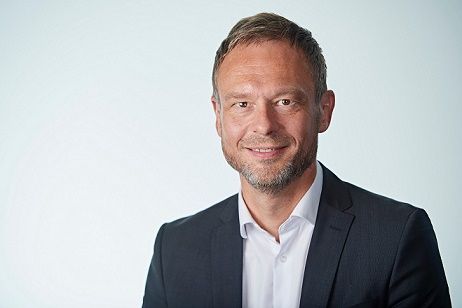One of the co-founders of Dansk Folkeparti and still its organisational co-chairperson, Carl Christian Ebbesen is Copenhagen’s deputy mayor for culture and leisure.
As a teenager he already took a keen interest in politics and after finishing his university degree, came to Copenhagen to work as a political and financial secretary for the party at Christiansborg.
He has been a member of Copenhagen City Council since 2001 and on 1 January 2014, became mayor for culture and leisure. His area of responsibility covers the city’s libraries, museums, citizen service centres, sports facilities and culture centres.
What makes a good local politician?
A trustworthy one. One who works hard and wants to create a better Copenhagen in dialogue with Copenhageners.
Which areas politically are closest to your heart?
To re-establish safety in the city. There has been far too much criminality lately. We need much more focus on a new and effective integration policy. We should welcome those who want to be part of Danish society and say no to those who don’t.
Of course there is also the issue of how we treat our elderly. They’ve created the wealth that has led to us being chosen as the best city in the world to live in and that generation gave us the welfare state. We need to give them respect and help them when and where they need it.
Your program states that Copenhagen should be distinguished by Danish values and norms. What does that mean?
That means that people who want to live in Copenhagen should not expect special treatment, such as single-sex swimming sessions or special religious concessions concerning food. They should accept that we don’t want to change our society and respect our values, our history and our way of doing things.
Sport is close to your heart. What can you do to make sports facilities available to more people?
In my four years in office, I’ve secured a budget of 1 billion kroner to invest in new sports and cultural facilities. I’ve almost doubled the amount spent on culture and new sports facilities. That’s because I think it’s healthy that young people take part in sporting activities and follow their interests in their leisure time. It’s also good for their social life. I hope to be re-elected so that I can continue that work.
Is this also good for promoting integration?
Definitely! When you’re playing football you don’t look at where people come from, their religion, or how much their parents earn, but at the person – can he play football or not? In sports clubs and associations you have a social life with people sharing the same interest. It makes for good integration and instils sound Danish values.
A lot of expats and non-Danish speakers can vote, but some feel that perhaps it’s not worthwhile using their vote. What could you do for this group if you were re-elected?
The key point here is that when you come here to work or study, you need a social life too. I think that culture and sports and clubs where you meet through mutual interests are very important for people who are here for a limited period of time.
It’s important to vote for someone like me who has shown that it’s possible to fight for these things instead of someone who doesn’t care about them. That’s a good reason to vote.
Are you committed to continuing the current trend towards a ‘greener’ Copenhagen?
Yes! I’m working with my colleagues to make Copenhagen CO2-neutral by 2025. It’s also important to me that we have green areas where we can hear the birds and just relax in nature. We can’t build all over Copenhagen. We have to ensure there are spaces for parks and green areas. When I work with the planning department, I’m always thinking of how we can create green spots – oases of calm in the city if you like.
Do you have any plans to strengthen public transport and maybe even introduce lower fares?
I’ve been a politician for 16 years and I know that it is unrealistic to have both better public transport and lower fares. I think we have to choose. I want better public transport.
Some places have made public transport free and they’ve been able to save money by sacking ticket inspectors etc …
That’s true! This might work in the countryside but in Copenhagen we receive 1.15 billion kroner in revenue. When I was young I also dreamt about that, but now I know it’s not realistic. You have to have the money in your hand before you can spend it, so I’d like to use it on more and better public transport.
When you are ‘off duty’ what cultural events do you like to participate in with your family?
I’m a very big fan of music and going to concerts, but I like a lot of different cultural events. I enjoy going to the Royal Theatre to see ballet because my girlfriend is a former ballet dancer. Copenhagen has a lot to offer when it comes to culture and that’s how it should be in a big city. We should have things going on to suit all tastes.
What is the main difference between your policies and those of the ‘red’ bloc, or don’t you see it in terms of bloc politics?
I work with both sides of the political spectrum. That’s what Dansk Folkeparti does. When it comes to social policy and helping people, I often work with the ‘red’ side. When it’s about improving things for business and ensuring that companies have the best conditions to remain in Copenhagen and create jobs, then I often work with the ‘blue’ side.
I see myself as a politician able to make agreements with everyone in City Hall because when it comes to local politics, it is the end result that counts and not narrow party lines and I’m in politics to make a change.















